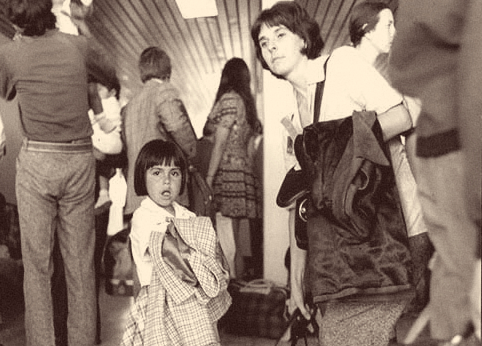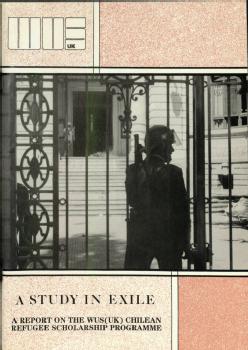Professor Alison Ribeiro de Menezes, AHRC Research, Development and Engagement Fellowship
Voices of Humanitarianism: British Responses to Refugees from Chile
How did British people respond to the plight of Chileans fleeing persecution after President Augusto Pinochet’s 1973 coup? What were the experiences of the approximately 3,000 Chileans who came to the UK, and how do they now remember the welcomes they received across the country?
Professor Alison Ribeiro de Menezes' Fellowship will explore the plight of Chilean refugees who fled the country after the military coup of September 1973, when the Chilean Armed Forces overthrew Salvador Allende's government. Pinochet’s regime was one of a series of violent dictatorships in the region.
Between the mid-1970s and the mid-1980s, approximately £11million (the equivalent of £110million today) was assigned to the rescue of Chileans from political persecution. World University Service (WUS) was important in this process, working with groups including the Joint Working Group for the Resettlement of Refugees, Chile Solidarity Campaign and Chile Committee for Human Rights.
Almost 3,000 refugees came to the UK as a result of these and other efforts, although approximately half were later able to return home.

A Chilean mother and daughter prepare to leave Santiago after the military coup.

A Study in Exile: A Report on World University Service's Chilean Refugee Scholarship Programme, 1986. The programme assisted 900 Chileans to complete or continue their education.
The role of late 20th century British humanitarianism
Professor Ribeiro de Menezes' project aims to illuminate late 20th century British humanitarianism at a pivotal moment towards the end of the Cold War, as well as offer a rare opportunity to build an internal history of – and give voice to – the wide range of actors, agents and recipients involved in that work.
Her research will examine a period of UK activism in support of refugees, together with an oral history of Chilean exile. Interviews with both first- and second-generation Chileans will shed light on understandings of identity and belonging among former refugees and their children who grew up far from Chile.
Drawing on both narrative analysis and a focus on material cultures, the project aims to develop a cultural studies approach to humanitarian history.
Building on Professor Ribeiro de Menezes’ AHRC network project on Chilean exile and continuing her close collaboration with the Museum of Memory and Human Rights in Santiago, Chile, the research will seek to recover the voices of both the recipients and agents of humanitarian support and offer a detailed understanding of their historical agency.
